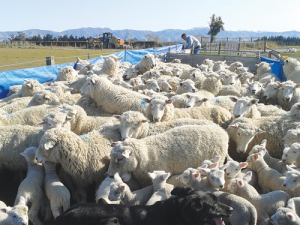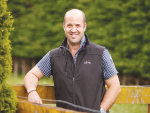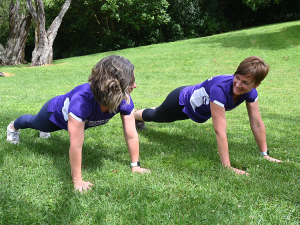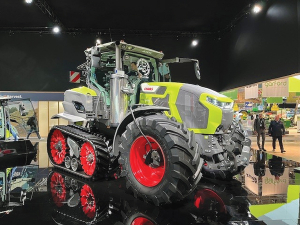Treating twin-bearing ewes with anthelmintics has positive results for both the ewe and lamb, as shown by a recent study, says Clive Bingham of Zoetis NZ.
The aim of the study was to determine if there was any benefit on production from treating poor-condition twin bearing ewes with a long acting anthelmintic product pre-lamb, Bingham says in a paper to the NZ Veterinary Association conference.
It also aimed to find out if there was any difference between the two treatment options.
The assessment of productivity was based on the body weight and condition score (CS) of twin bearing ewes and the body weight of their lambs.
On this farm, most animals were in poor condition, so the trial was limited to this ‘class’ of stock.
A total of 599 mixed age twin bearing ewes (average CS 2) were drafted into three equal groups. All ewes were given a 5-in-1 clostridial vaccine.
The negative control group received no anthelmintic treatment pre-lamb. The other two groups received either a Bionic Hi Mineral combination sheep capsule (abamectin 160mg and albendazole 4.62g) or an injection of Cydectin long acting (LA) injection for sheep (moxidectin 20mg/ml) four weeks prior to the start of lambing.
All ewes were body condition scored (0–5 scale) and weighed at pre-lamb, docking (65 days after treatment) and at weaning (127 days after treatment). Faecal egg counts (FEC) and larval cultures were taken at these three times.
The faecal egg counts at docking showed a marked reduction in the treatment groups compared to the control.
At weaning all groups had low counts due to the ewes’ immunity reducing the parasite burdens. The Cydectin LA group was significantly lower than the controls at this time.
The larval cultures at both pre-lamb and weaning were similar for treatment and control groups. The predominant species present was Cooperia but this was accompanied by smaller numbers of Haemonchus, Trichostrongylus and Teladorsagia.
At docking the population within all groups had changed substantially.
The predominant parasite represented in the control group was now Haemonchus, with smaller numbers of Cooperia, Trichostrongylus and Teladorsagia present. Both treatment groups had higher proportions of Teladorsagia and Trichostrongylus, compared to the control. This is most likely a result of these species having drench resistance.
At weaning both ewe treatment groups were significantly heavier (Ave=3.5kg, p<0.0001) than the non-treated ewes. There was no significant difference in weight between the treated groups.
The proportion of ewes with condition scores <3 increased substantially by weaning in all groups but both treatment groups had significantly (p<0.0001) more better-condition ewes than the control group.
The lambs from both treatment groups were significantly heavier at weaning. There was no significant difference in the weight of the lambs between the treatment groups.
The return from treating poor-condition twin bearing ewes with either Cydectin LA injection or Bionic capsules was substantial from financial and feed saving viewpoints.
Ewes that wean at condition score ≥3 do not require extra feeding above maintenance before mating.
This extra feed can then be used to either get light ewes up to weight or to fatten lambs. The extra 3.5kg of weight on the treated ewes is worth about 100kgDM/ewe. This equates to a substantial saving in feed, when applied to the whole flock.
In conclusion, the study found that treating twin bearing ewes that are in poor condition pre-lamb, with long acting anthelmintic treatments (Cydectin LA or Bionic capsules) results in both a significant increase in body weight of the ewe (Ave=3.5kg) and lamb (Ave=2.6kg) by weaning.
No significant difference was demonstrated between the two treatments in either the weight of the ewe or the lambs by weaning.



















